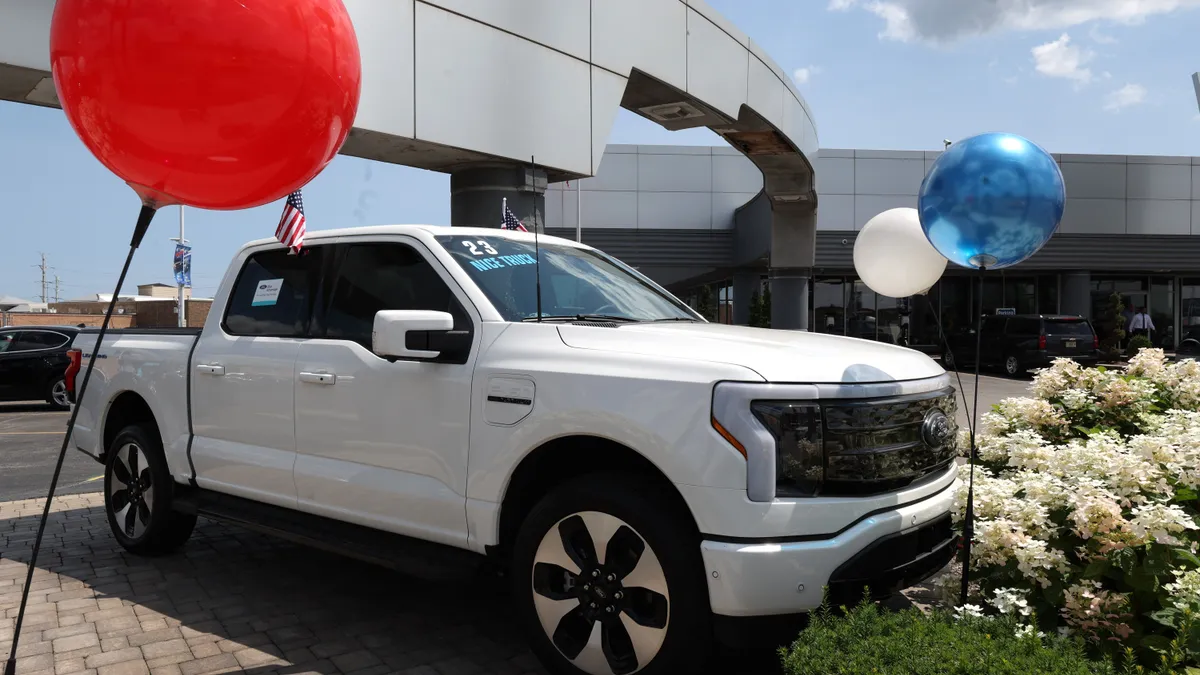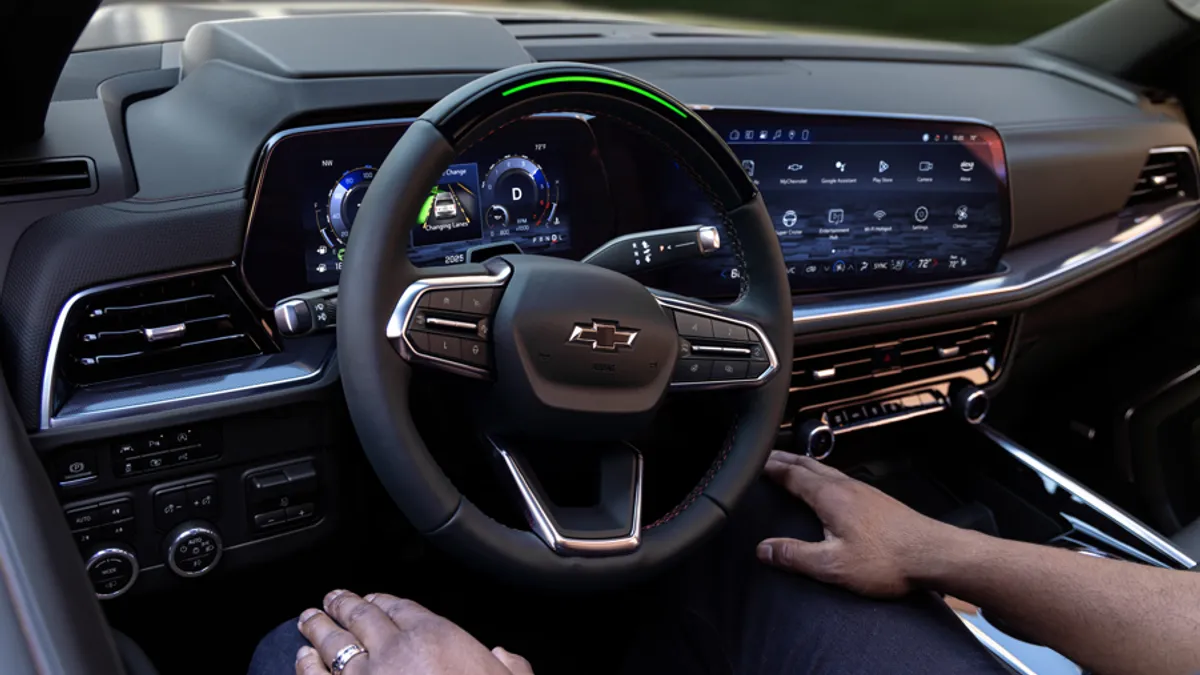Dive Brief:
- Ford has updated its Model e EV program to make it less costly for dealers to become certified to sell Ford EVs, the company confirmed in an email. The revised program goes live Jan. 1.
- Changes to the program include requiring fewer EV chargers and reducing dealer training requirements to prepare them to sell EVs, which the company said would drop investment costs by about 50%.
- Over the last year, some dealers and dealer associations filed legal challenges in at least six states, saying Ford’s EV program violated dealer franchise laws, while others were dissatisfied with the financial commitment required to sell its EVs.
Dive Insight:
Ford announced the Model e EV program for dealers in September 2022. The program has two tiers: Model e Certified and Model e Certified Elite.
Previously, to become Model e Certified, Ford required its dealers to invest an estimated $500,000, including installing five EV chargers. For Model e Certified Elite dealers under the previous plan, investments could be as high as $1.2 million, most of which covered the costs of installing two DC fast chargers and at least one public-facing charger that’s available on Ford’s Blue Oval Network, according to Electrek, which was briefed on Ford’s plans last year.
For the higher tier, Certified Elite Ford EV dealers also receive a set number of EVs per year rather than a percentage of sales.
The updated requirements call for "certified" dealers to have two Level 2 chargers, down from five previously. In addition, Ford’s certified elite dealers will only have to install three EV chargers instead of five. Ford also removed the requirement for certified elite dealers to add an additional level 3 fast charger in 2026.
Dealers must install the EV chargers by June 30, 2024, which Ford said is in response to charger supply chain and infrastructure delays.
Ford also modified the training requirements of its dealership service departments, which could alleviate some of the financial burden, according to the company.
“We made changes to the voluntary Model e EV Program as we continue to adapt our overall EV strategy to the market,” Marty Günsberg, a Ford spokesperson, said in an email. “We also continue to listen to dealer feedback.”
According to the Detroit News, while speaking at the Automotive News World Congress in Detroit last December, Ford CEO Jim Farley said 1,920 Ford dealers had enrolled in the Model e program for 2024-2026. Of this number, 1,659 dealers opted for the Certified Elite tier.
The looser dealer requirements to become EV certified come as the automaker scales back its EV plans. Ford said it was postponing around $12 billion in EV investments in October.
These plans include delaying the construction of one of two joint-venture battery plants in Kentucky with its battery partner SK On. Ford also scaled back investments for its BlueOval Battery Park in Marshall, Michigan. The plant will now produce a planned capacity of approximately 20 GWh, more than a 40% reduction, as the automaker works to balance investment, growth and profitability. Ford said yesterday it is “re-timing and resizing some investments” to adjust to market demand.














